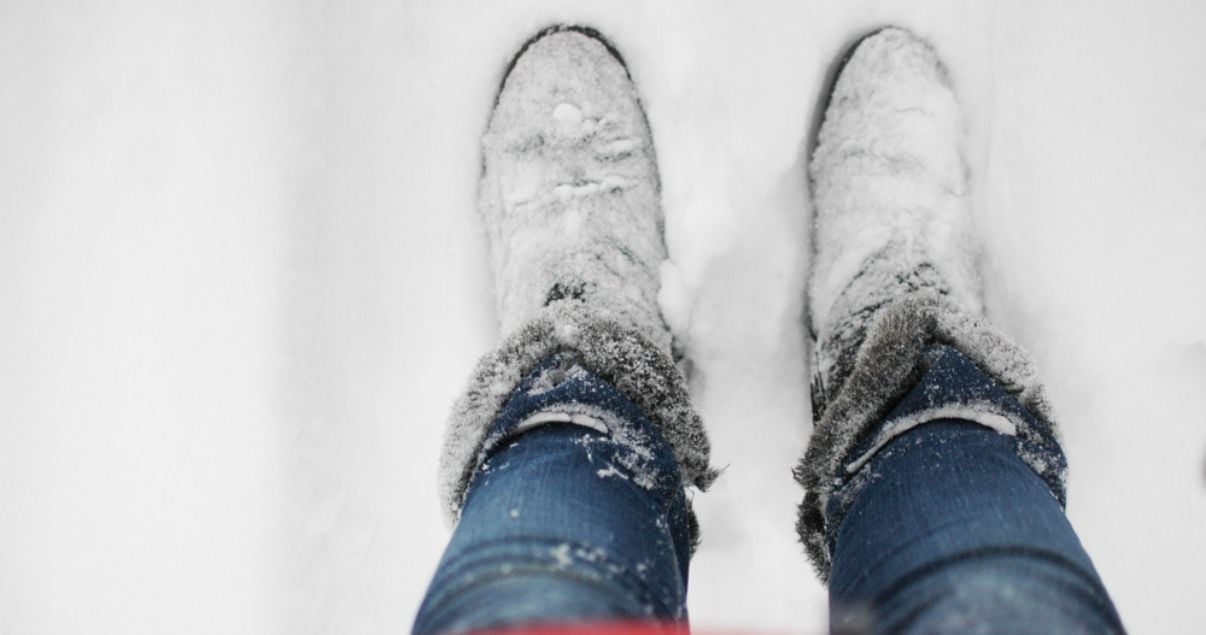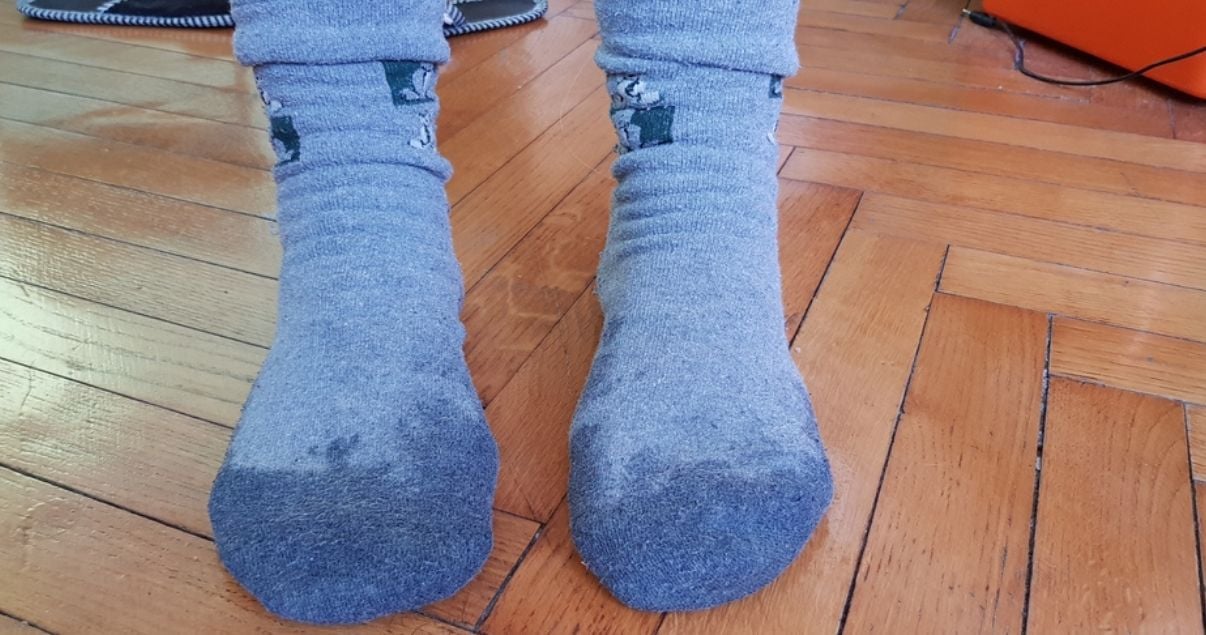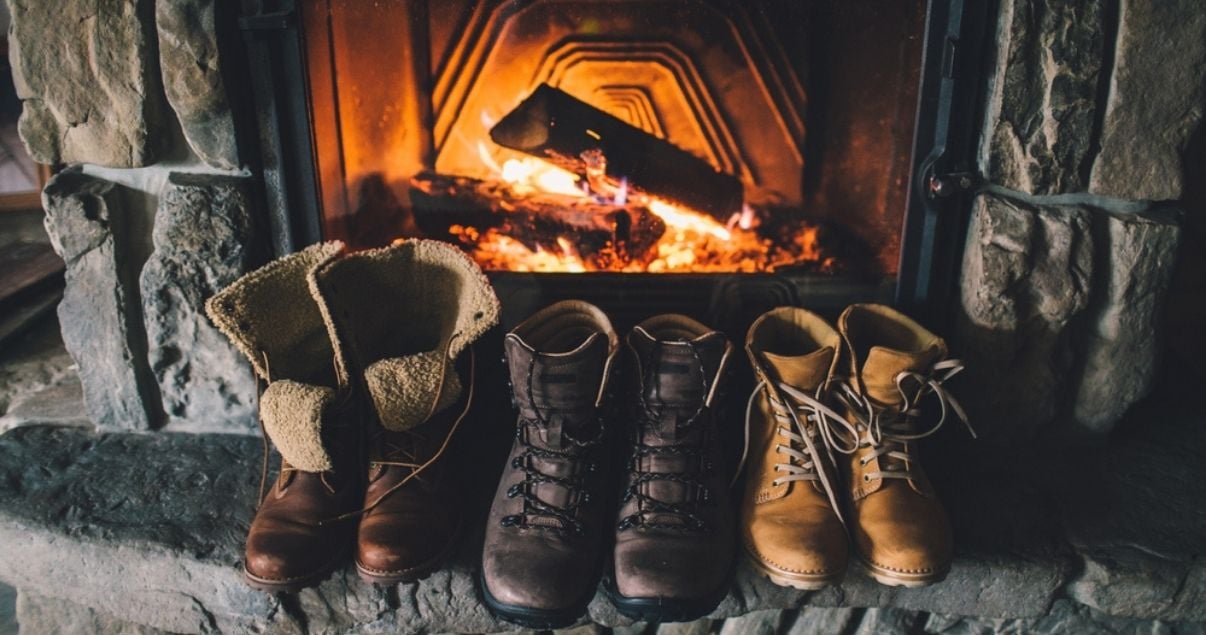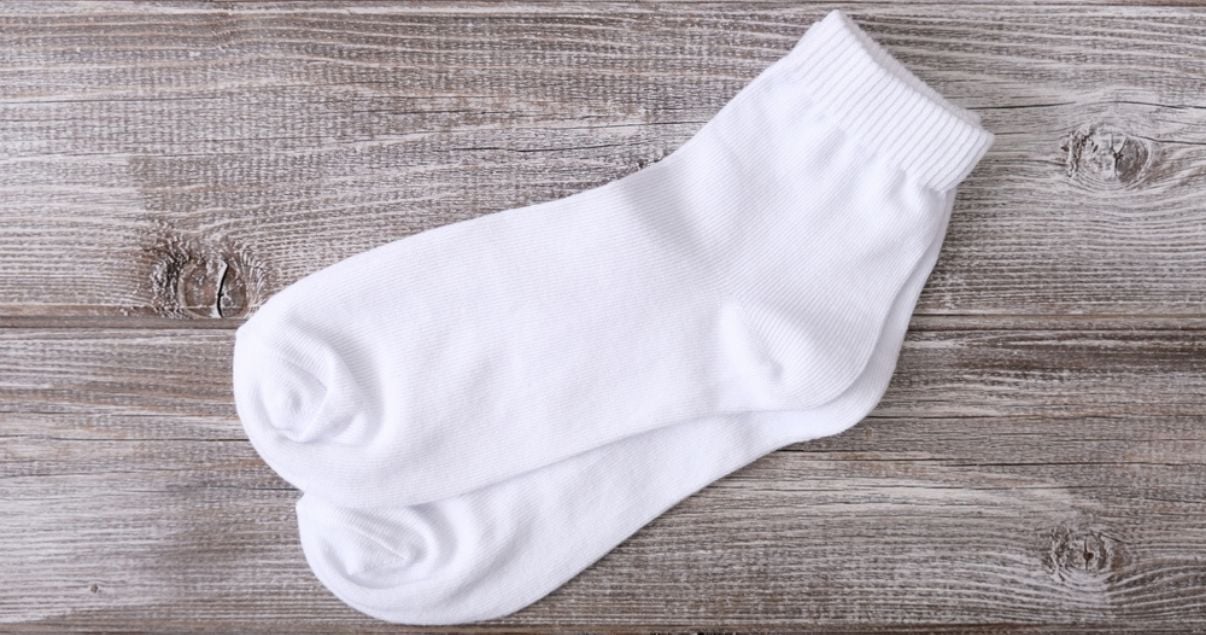With many layers and potentially major temperature changes between the cold outdoors and hot buildings, the winter season can result in some seriously sweaty feet.
While it’s only normal to want to keep your feet cozy in thick woolen socks and furry boots, the many layers can cause your feet to sweat excessively. And as we know, sweaty feet and damp footwear can create the optimum conditions for an athlete’s foot fungal infection. In this post, we’ll be discussing what causes sweaty feet, how to maintain a good foot care routine throughout the winter, and athlete’s foot prevention.
What Causes Sweaty Feet

As mentioned in our other blog, sturdy winter boots and thick socks are a necessary evil when it comes to athlete's foot and sweaty feet in the wintertime.
It’s tempting to wear them, especially if you live in an area with plenty of snowfall or sub-zero temperatures.
But they can, unfortunately, cause your feet to sweat more than usual. The thicker, often synthetic material provides less room for airflow and ventilation - meaning any sweat your feet produce has nowhere to go other than the fabric of your shoes.
This not only makes your feet extra sweaty but also leaves your footwear damp and humid.
How to Stop Sweaty Feet this Winter and Prevent Athlete’s Foot

While we’re not saying don’t wear those snug, fluffy boots and socks, there are a few tips you can follow to prevent your footwear choice from encouraging an athlete's foot infection.
• Always remember to keep shoes clean. Follow our guide to washing your shoes to keep them fungus free.
• Take your shoes off when you can. Removing your shoes will enable them to dry out before your next use and prevent them from becoming too damp.
• Wear a clean pair of socks every day. The best socks for sweaty feet are made of cotton or other natural materials to absorb sweat to keep your feet dry. For more details, take a look at our post, Winter Athlete's Foot Prevention.
• Wash your feet daily. Wash your feet with mild soap and warm water at least once a day in the evening to rinse off the sweat, and any accumulated fungus and bacteria. Read our foot washing tips for athlete’s foot prevention.
• BONUS TIP - Give yourself a pedicure. When your feet are covered up by multiple layers in the winter it can be tempting to neglect your feet and leave a pedicure to the spring. While we’re not saying you need to paint your nails, it’s best to give yourself a simple at-home pedicure by removing dead skin with a pumice stone and cutting your toenails in a straight line. Taking care of your feet and reducing sweating will prevent athlete’s foot from taking hold this winter.
Go Barefoot When the Heat's On
When you go inside, it is normal for the change in temperature to raise your body temperature, resulting in a sweaty turn of events.
Those fluffy lined boots may be the perfect choice for the snowstorm outside but once you’re in a warm heated home, all they’ll do is make your feet too hot.
Make sure to take off your shoes and socks (when possible) to prevent your feet from becoming too sweaty. Put on a clean pair of socks when you arrive home and leave your shoes at the door so they can dry out.
Foot Powder for Athlete's Foot
As an additional foot care step, we recommend regularly applying a foot powder made for athlete’s foot. You could try Silka Ⓡ Antifungal Powder for extra protection against the foot fungus while keeping your feet dry.
How Does Foot Powder Work?
Non-medicated Foot powders can help prevent athlete’s foot by absorbing excess moisture from your feet and preventing your feet from becoming too sweaty. Silka Ⓡ Odor Defense Foot Powder also has a refreshing, cooling effect for more comfortable feet.
Damp and hot feet provide the fungus with the optimum conditions to thrive, so simply incorporating a foot powder into your daily foot care routine will work wonders for improving your foot health.
If you don’t like the idea of using a foot powder because you’re concerned about the possible mess, we recommend trying Silka Ⓡ Liquid Powder. It applies as a liquid on your feet that quickly turns to powder to absorb moisture..
Remember that if you have excessively sweaty feet, you should make an appointment with a doctor to confirm that it isn't a more serious condition.
Take Care!






